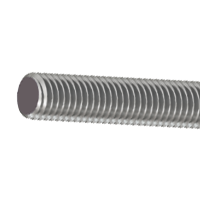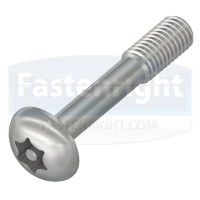Often in marine equipment, there are a number of things that can cause the failure of fasteners in it – but over 35% of fasteners within marine equipment fail due to marine corrosion. Seawater is especially complex to counteract due to chemical and biological activeness which produces a large number of effects. We’ve compiled a short list of three materials that can be used as fasteners to dispel the threat of seawater corrosion.
It’s going to be a big issue for anyone that has invested not only money but time too, in securing their equipment with fasteners that are bound to corrode. But there are materials that can be used in your fixing options to dissipate the encroaching threat of corrosion.
Considerations need to be taken in regard to the durability, damage susceptibility, reliability, safety and endurance that will be needed for the project. Considerations also need to be taken surrounding the chloride concentration in the water, the temperature of the water, the oxygen levels of the water and the amount of organic matter.
Considerations to Take Before Picking Fastener Materials in Corrosive Seawater Environments
As mentioned above, considerations should be taken regarding external factors including chloride concentrations, water temperature, oxygen levels and organic matter levels.
For chloride, this involves the salinity of the water – which is one of the most threatening causes of seawater corrosion. If the water is stagnant, the chlorides can progress the probability of and damage caused by pitting corrosion. A number of distinct things have an effect on the saline levels of the water, including evaporation – which enhances the levels – as well as precipitation and dilution, which diminish the levels.
Seawater corrosion is greatly affected by oxygen concentration – if there are lower oxygen levels in the water, corrosion rates will increase.
The temperature of the water depends on the geographical region in which the application finds itself. In the north or south poles, the water will find itself at temperatures around -2°C, whereas in more Mediterranean or tropical areas it can find itself closer to 35°C. The warmer the water is, the more devastating a corrosive attack can be, as heat enables the reaction of oxides – which of course indicates that greater temperatures and hotter applications will see corrosion rates that are raised.
If your application is in a more coastal area and closer to land, more sunlight can reach the water here and develop the organic levels of plant growth and marine organisms. These concerns can have a pernicious impact on applications, especially those which have already been affected by corrosion.
The Best Materials for Fasteners for Corrosive Seawater Corrosion
Super Duplex

They also hold exceptional crevice corrosion resistance within seawater cooling systems, which are chlorinated to prevent fouling from elevated organic development. They are more often than not found in offshore situations, preferred over the likes of carbon steel and other stainless steels.
Additions of chromium and molybdenum increase the resistance to corrosion held by Super Duplex alloys, as well as the chemical composition of this alloy providing a high level of resistance in chlorides whilst maintaining high strength and ductility.
Titanium

It is strong within chlorinated water and is resistant to seawater in elevated temperatures higher than that of other materials and can be used up to a mile in depth without signs of crevice corrosion or pitting.
Monel
Monel is one of the most resistant fastener materials in seawater that is rapidly flowing and should be utilised as long as the salt water is not stagnant. If the water is stagnant, pitting and cracking can become significant concerns. It’s also an influential option against microbial induced corrosion, which is great if the application is in a more coastal area.
Famously, Monel is extremely resistant to seawater and the rough waves that can accompany it – but caution should be exercised when it is used alongside materials such as steel, iron, zinc, and aluminium. This is due to the issue of electrolytic action or galvanic corrosion, which will cause the base material (steel, iron, zinc, aluminium) to corrode.
It is best used in off-shore platforms, as well as in power plants or processing plants that use seawater as a coolant in their process.
Contact us regarding Fasteners for Seawater Corrosion in a Range of Materials
There are a large number of materials that can hold their own as fasteners for seawater corrosion, but those above are some of the most popular across the world in regards to stopping the tide of corrosion in seawater, chlorinated water and more. There are even improvements being made in recent years to allow certain materials to act as subsea electrical connectors, as well as much more.
Each of the above has its own strengths, such as Monel being strong within rapidly flowing water.
If you require any of the above materials for applications that require seawater corrosion resistance, or any material for a specific application, please do not hesitate to give us a call.




